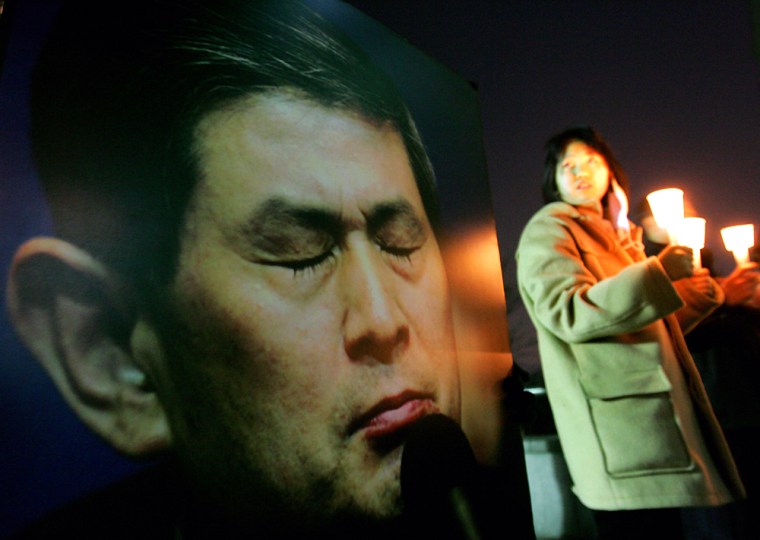Prosecutors raided the home of disgraced stem cell scientist Hwang Woo-suk on Thursday along with the homes of several key members of his research team, a South Korean broadcaster reported.
The raids came a day after a prosecution source said prosecutors had widened their criminal investigation into Hwang’s team to see whether they had breached a bioethics law by illegally purchasing human eggs.
Prosecutors have already launched a criminal probe of the team on suspicion the members fraudulently used state funds.
Hwang’s team intentionally fabricated data in two landmark papers on human embryonic stem cells that have since been debunked, a Seoul National University investigation panel said.
South Korean news broadcaster YTN said prosecutors took boxes of documents from Hwang’s home and seized documents from the homes of several key team members. YTN showed video of a raid and quoted prosecution sources as saying they wanted to retrieve documents and experiment notes they had not seized before.
Prosecutors were not immediately available to comment on the report.
Prosecutors had already raided Hwang’s home and office in mid-January when they started their probe. At that time, they also raided more than 30 laboratories, residences and other sites related to Hwang’s research.
Hwang’s research had raised hopes because it seemed to hasten the day when genetically specific tissue could be grown from embryonic stem cells to repair damaged organs or treat diseases such as Parkinson’s.
South Korea enacted a bioethics law in January 2005 aimed at raising ethical standards in stem-cell research and ensuring the country’s research met global practices.
The law allows for therapeutic cloning for embryonic stem-cell research, but bans human cloning. It prohibits the commercial trade in ova or sperm, providing punishment of up to three years in jail for brokers and up to two years for donors.
Fraudulently using state funds can carry a jail term of up to 10 years.
The university investigation panel said Hwang’s team used more human ova than they had claimed in their research. It said women were paid for their donations, which would not necessarily have been illegal if the payments took place before the 2005 bioethics law was enacted.
South Korean auditors questioned Hwang last Friday as part of a separate investigation into whether his team misused state funds. The team received $43.35 million in state funds from 1995 to 2005, the Board of Audit and Inspection said.
